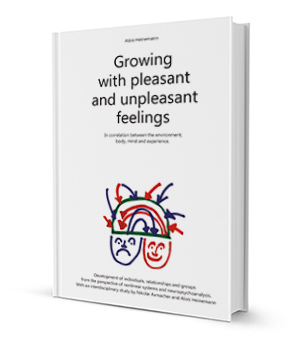A quick insight
The idea that only the positive feelings (joy and pleasure) and positive behaviour (praise and understanding) promote the development of children, adolescents and adults is an intellectual, cultural invention. It became a cult in the second half of the last century, especially from the 1970s onwards. Just like the cult of the structures and rules in the first half of the last century, the cult of positive feelings led – and still leads today – to the suppression of negatively or unpleasantly experienced feelings (pain and aggression). The suppression and repression of pain in particular causes or exacerbates physical and mental illnesses, prevents the clarification of private and professional relationships, often leads to dramatic and traumatic separations and promotes deviant behaviour.
The inability of the positive cult to enable itself and others to deal with negative feelings and emotions has resulted in a return to the cult of rules and structures (including that of quality management).
Research into the nature of human beings by biology and neurobiology (brain research) has shown that we possess the natural systems (neural networks) to perceive pain and aggression at an early stage and to feel and manage them in contact with our attachment figures. From the perspective of brain research, children, adolescents and adults do not become strong and self- assured through the cult of the positive and positive feelings, but through the timely perception, expression and exchange of negatively experienced feelings (including those which are severe) and through the ability to „swing“ (oscillate) from negative to positive feelings.
Expressed in the words of Reinhard K. Sprenger (2012, p. 51), we are well advised to at least listen to the voice of biology (to perceive and take the negative emotions seriously) before we silence them once and for all with the cultural arguments (the cult of the positive, the delusion of equality and inclusion) of our zeitgeist and cause even more damage to the development of children, adolescents and adults, private and professional relationships.
